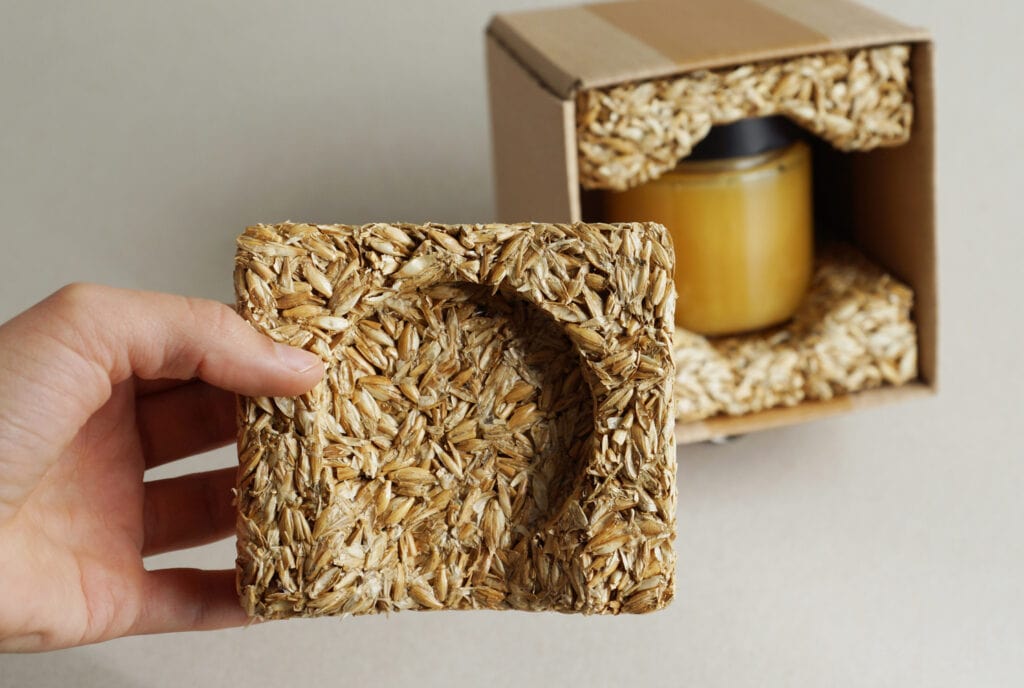Our Solution
Upcycling of residues
With RECOU, we have developed an alternative packaging cushioning material based on grain husks, the wrappings of cereal grains. For certain types of grain, the husks are separated from the grain during the first processing step and accumulate in large quantities at regional hulling mills. We use the naturally grown cavities of the husks for the necessary cushioning and insulating effect of the packaging material.
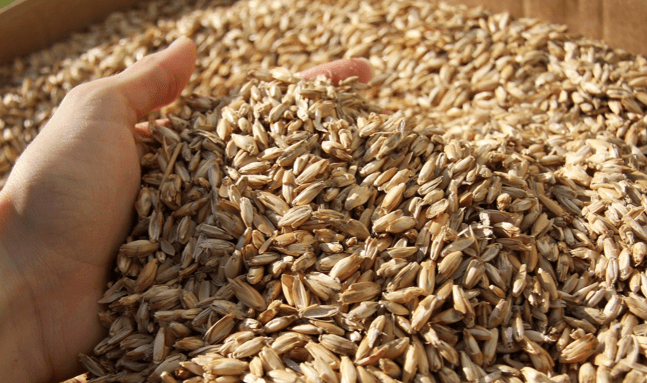
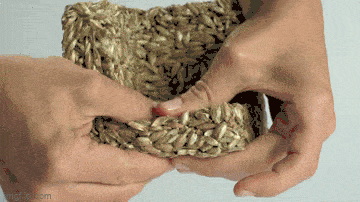
Stunning properties
Our material made from grain husks is completely biogenic and biodegradable. It can be produced in a few simple and low-energy process steps and disposed of in the organic waste garbage can. Thanks to our specially developed ecological binder, RECOU can be shaped as desired, and due to comparable material properties, it has the potential to substitute petrochemical packaging solutions such as EPS (Styrofoam) and represent an ecologically sound alternative for many applications.
Nature at first sight
The natural look of the material allows our B2B customers to communicate their sustainability ambitions to their target groups in a low-threshold and tangible way. The material is reminiscent of grain, straw, farms and nature! At the same time, end consumers can recognize the correct disposal option via the organic waste bin/compost.
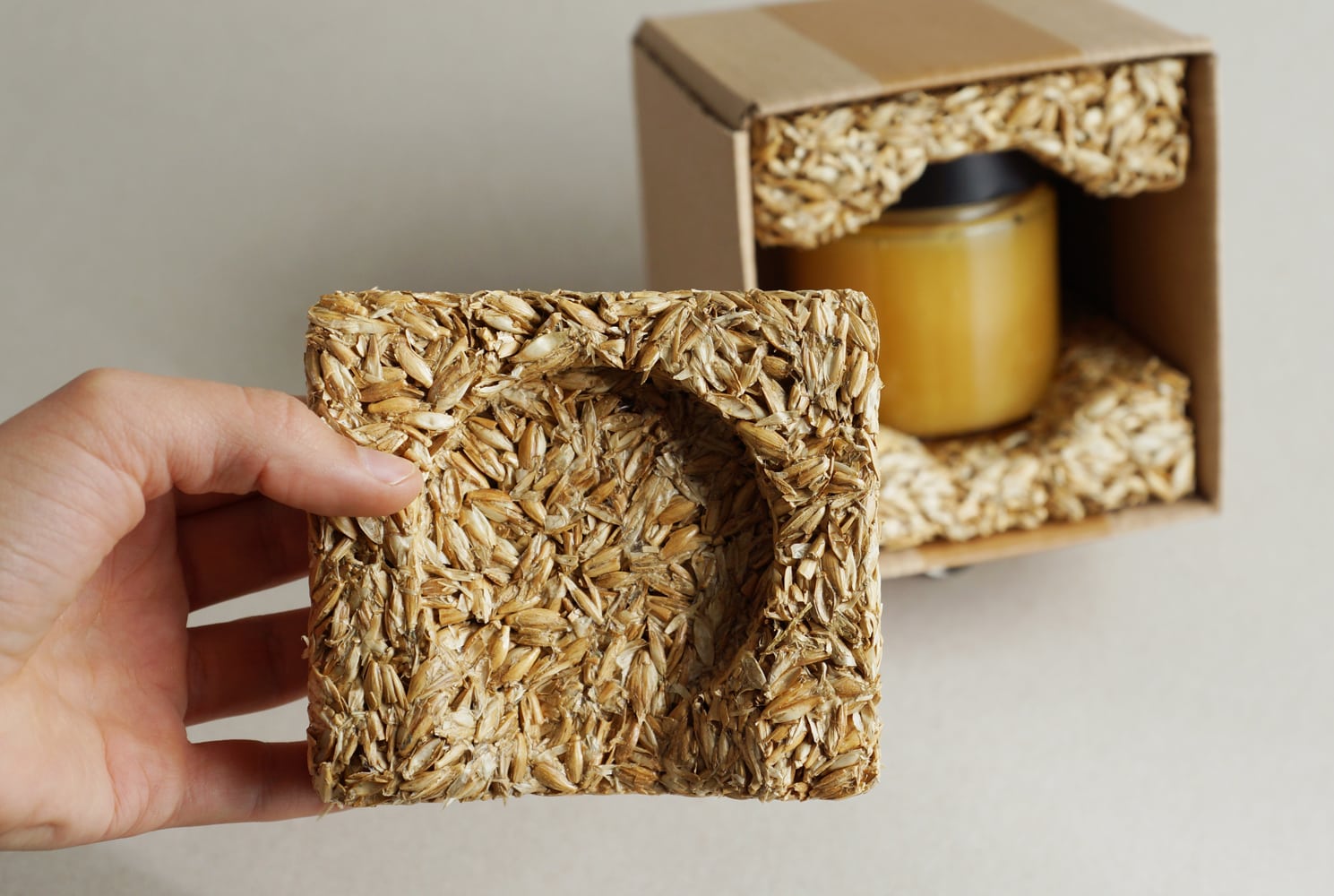
Packaging industry in transition
Despite their comparatively short useful life, conventional, plastic-based packaging materials last for centuries and are responsible for significant environmental impacts along their entire life cycle. Crude oil-based protective packaging not only exacerbates ecological problems, it additionally poses economic and social challenges.
We would like to make a contribution to overcoming this wasteful and unreasonable use of our resources. With the demand for protective packaging continuing to rise, it is high time for a sensible alternative!
Reasons to use RECOU
- plasticfree natural material
- biodegradable
- use of regional residual materials
- lower licence fees
- competitive prices through scaling
- promotes regional value creation
- ecological alternative at first sight
- appealing design
- emphasizes your sustainability ambitions
- individual & tailor-made solutions
- securely protected products
- WOW experience for your customers

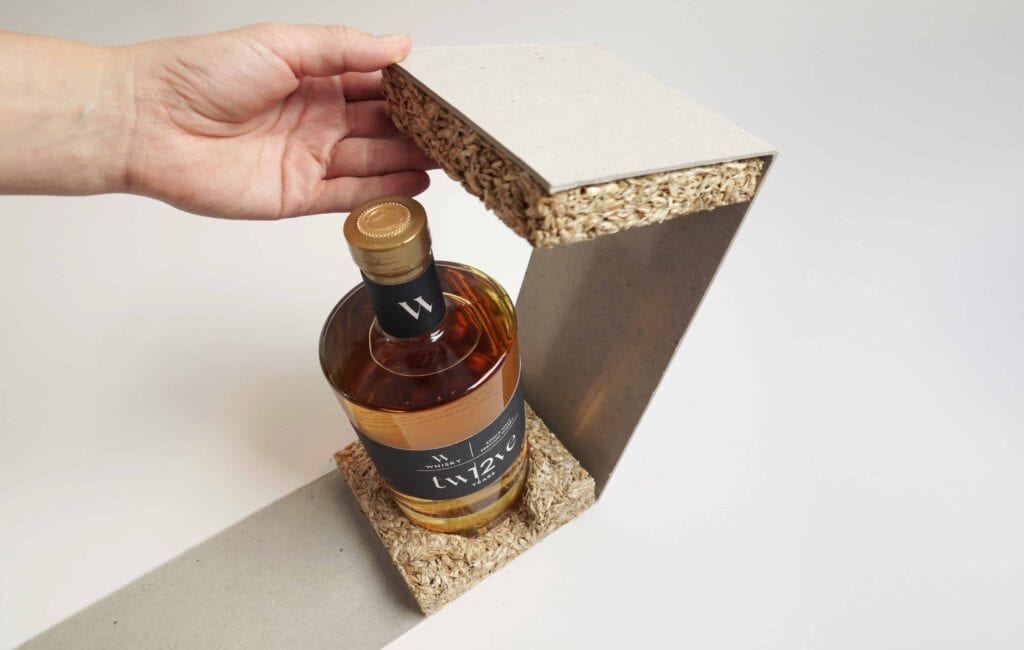
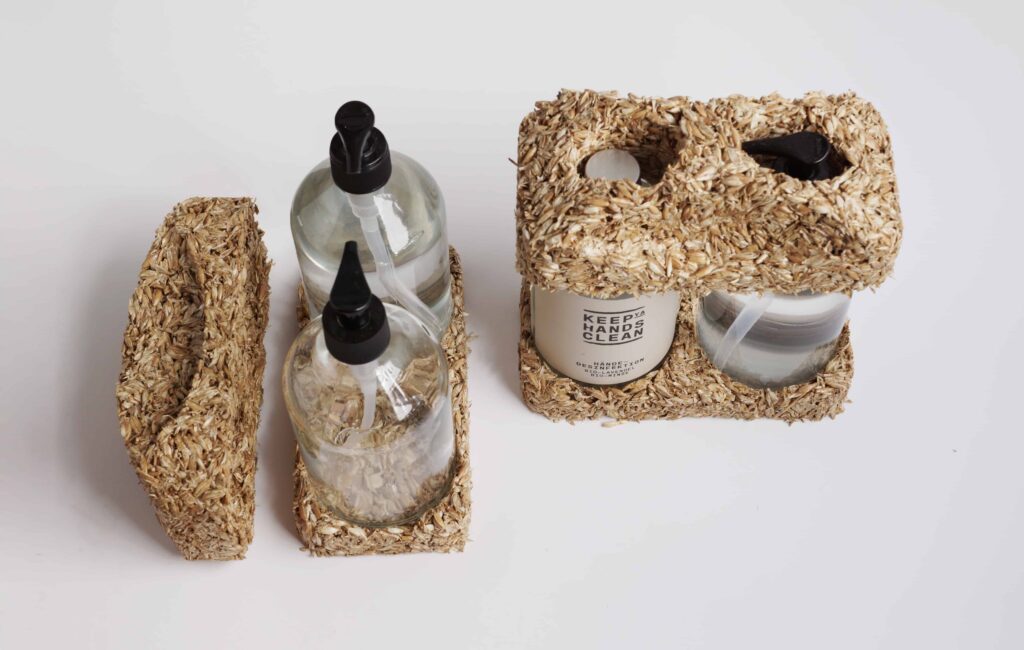

Answers to your questions!
Husks are produced during the peeling process of spelt cereals in mills. These have no use for the nutrient-free husks. Since husks have a low density, and thus a high volume, they are pelletized and/or used as bedding in large milling operations. A small part is used as pillow filling, for which the husks are cleaned beforehand.
At present, the most common utilization is via feeding into bio- or incineration plants, whereby energy is obtained.
No. Even if the intact husks look like “whole grains,” they contain no nutritional values. As a rule, husks are also not used for animal feed production.
We are currently focusing on the use of spelt husks, as these are available regionally in large quantities and can be procured with short transport distances. In this regard, we have contact with three regional spelt husk mills. Here, the residual material accumulates in large quantities throughout the year (approx. 1 ton per day and mill). In Germany, up to 125,000 tons of spelt husks are produced annually.
No, the grain is stored with the husks and dehusked during the year. However, individual mills only dehusk on days when the weather is good.
We use only organic ingredients for our binder so that the composite remains compostable. We use different formulations, but the exact composition remains our trade secret.
Depending on the recipe, our material is resistant to moisture and humidity. A test over seven days at a relative humidity of about 70%, no mold growth could be detected.
However, if the material is permanently exposed to high humidity or moisture, the decomposition processes start and mold may occur.
The entire manufacturing process takes between 6 and 8 hours at current conditions, depending on the size of the molded parts. A significant increase in efficiency can be expected through scaling and automation.
In principle, there are few limits to shaping. However, demolding from complicated negative molds is currently still a challenge. In addition, the wall thickness should not be less than 1 cm. Since spelt husks are larger than EPS spheres, edge radii of 2-3 mm or more can be formed. Thicker blocks/plates/molded parts wider than 5-10 cm pose a challenge in the drying process, as uniform drying must be ensured all the way to the interior.
We are currently working on the design of an industrial plant. We expect to put this into operation in 2024.
The material has an average density of approximately 120 to 150 kg/m³. This varies depending on the formulation of the binder.
The thermal conductivity of the packaging pads is approximately 0.052 W/m-K in the current blend, but will be further optimized for possible application as an insulation material. To our knowledge, EPS is between 0.02 and 0.04 W/m-K.
From the very beginning, we have strived to understand the ecological impact of our material very precisely in order to verify the hypothesis of ecological advantage and to quantify it reliably to the best of our ability. In order to make RECOU comparable with other materials, we have been in exchange with various companies and research institutes specialized in the so-called Life Cycle Assessment (LCA) of materials and products since the pre-founding phase. However, all our efforts so far lead to unreliable and quickly outdated results. In order to be able to make truly reliable and scientifically robust statements here, a large number of indicators have to be taken into account in a methodologically sophisticated way and uniform, justifiable assumptions have to be made. Since a serious LCA with peer review A) involves a not inconsiderable investment (between 30,000 and 50,000 €) and our processes B) are still under construction and are likely to undergo even greater changes, we feel compelled to address this issue in more detail only once our manufacturing process has become established. We will of course keep you up to date on this as best we can!
tO THE OFFER REQUEST
You want to package your product safely & ecologically with RECOU? Then ask for a non-binding offer! Just fill out the form on the right and we will get back to you as soon as possible.
